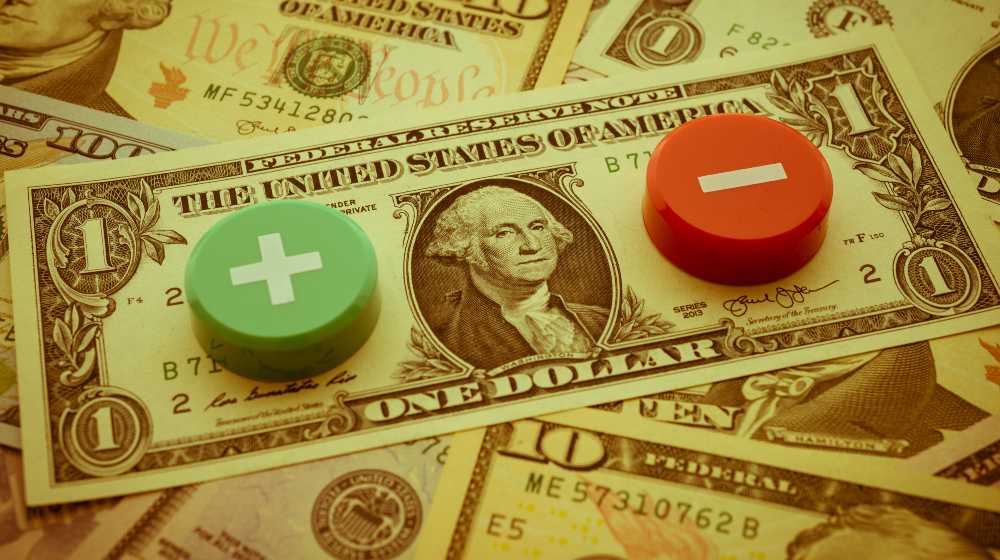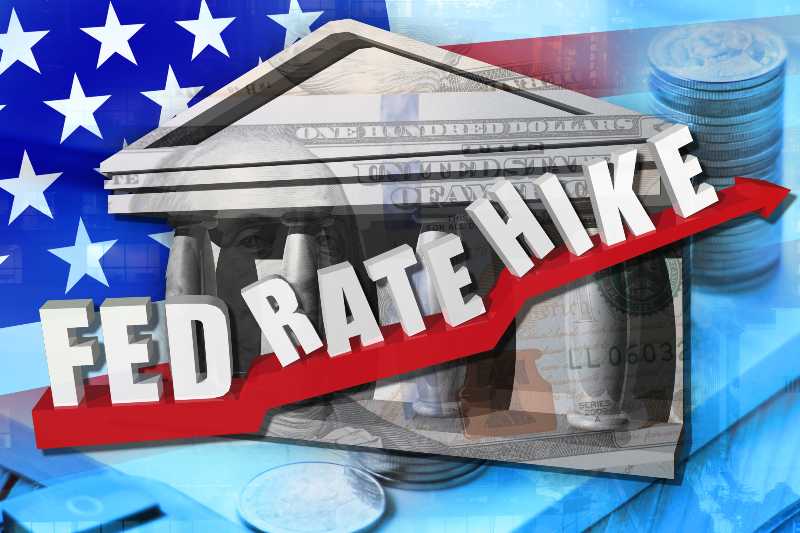Breaking News
How To Deal With The Upcoming Federal Rate Hikes

The much anticipated federal rate hikes will likely begin this week As the US Federal Reserve continues its battle against soaring inflation, it will now gradually raise interest rates. Industry watchers are expecting the first of the series of rate hikes to start as early as Wednesday.
RELATED: Federal Reserve To Hike Interest Rates 3 Times in 2021
First Of A Series of Federal Rate Hikes To Start This Week

This week, industry observers expect the Federal Reserve to begin its series of interest rate hikes. This will be the first time in three years that the agency will raise interest rates.
Want to see the full article?
Click here to read the full article on thecapitalist.com
During the pandemic, the Fed decided to hold rates to near zero to encourage spending.
Now, the Fed wants to curtail inflation. Its first task is to raise interest rates to temper spending to more manageable levels.
For its first salvo, the Fed will introduce a quarter-point rate hike. Already, economists foresee this hike to affect the economy as well as household budgets.
This is according to Greg McBride, Bankrate.com’s chief financial analyst As interest rates rise, consumers will usually respond by spending less. This can counteract the continued rise in prices.
However, the interest rate hikes may have different effects on various loan instruments such as credit cards, auto loans, student loans, and mortgages.
What Happens To Credit Card Debt When the Federal Rate Hikes Start?
Credit card companies usually charge a variable interest rate. This means that the Federal Reserve’s benchmark rates influence their own interest rates.
US credit card rates are currently at 16.34%, which is a decrease from the previous 17.85%. However, credit card holders should expect the annual percentage rate to rise along with the federal rate hikes.
According to Matt Schulz, Lending Tree chief credit analyst, the increase is small but noticeable.
“A single quarter-point rate increase isn’t likely to flip cardholders’ financial world upside down. However, all rate hikes, even small ones, are unwelcome news for folks with credit card debt,” he said.
McBride advises borrowers to secure interest-free rates to pay off credit card debt. “That is a tremendous opportunity to put yourself on the expressway to getting out of debt,” he noted.
What About Auto Loans and Mortgages?
For buyers planning on taking on a fresh car loan, the Fed interest rate hike won’t affect the rates. At least not much. McBride explained that a quarter percentage point increase on a $25,000 loan is $3 a month.
“Nobody is going to have to downsize from the SUV to the compact because of [interest] rates going up,” he said. It’s probably more difficult to find a car within your budget.
However, mortgages are a different matter. Any Fed hikes mean higher rates for long-term fixed mortgages. The average 30-year fixed-rate home mortgage is already a full percentage up since November at 4.14%.
This will likely go up more. Mark Scribner, managing director of Oxygen Financial in Boston, suggested locking at a comfortable home equity line (HELOC) now instead of waiting for another adjustment. Unlike adjustable rate mortgages, a HELOC adjusts immediately rather than once a year.
Student Loans and Savings
Government student loan rates remain fixed, so federal rate hikes won’t matter much. However, private student loans’ interest rates are likely to rise along with the Fed’s.
This might be a good time to identify outstanding loans and check if refinancing is a good option. Just don’t get a new loan with a variable rate.
Meanwhile, savings accounts won’t improve much with a Fed rate increase. Deposit rates are notoriously slow to respond to federal rate hikes.
Additionally, as the inflation rate is soaring right now, any money in your savings account loses purchasing power over time. Don’t expect the interest rate to overtake the inflation rate as far as savings are concerned.
Watch the 23 ABC News videos reporting that the Federal Reserve is considering raising interest rates:
Do you support the Federal Reserve’s move to raise interest rates to stem inflation? Will this move affect your current savings and loans?
Let us know what you think. Share your comments below.
You Might Also Like:
- How to Stretch Your Budget During Inflation
- Rand Paul Files Amendment To Ax Fauci’s NIAID Director Job
- West Faces $300 Per Barrel Prices If They Cut Off Russian Oil
Keep up to date with the breaking news by following us on Facebook and Instagram.
